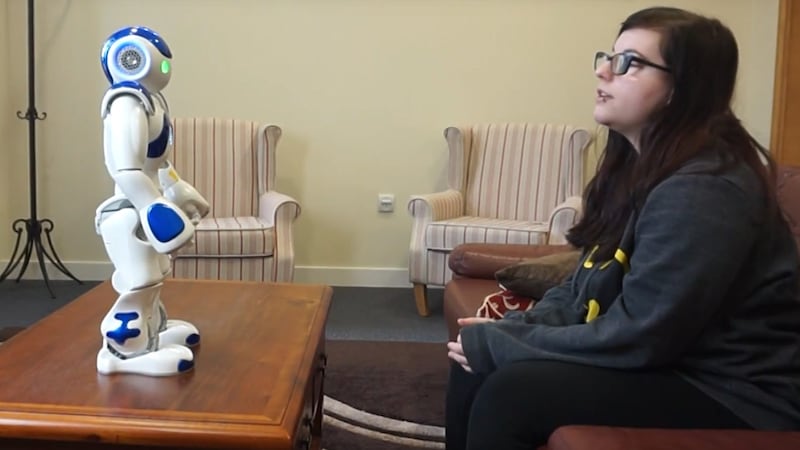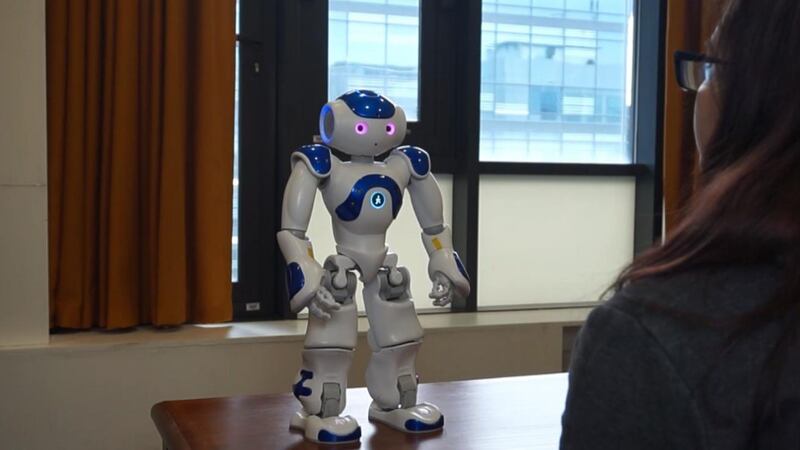A robot programmed to give motivational interviews – a counselling method designed to support positive behavioural changes – has “pleasantly surprised” researchers by showing early positive results.
The humanoid NAO robot was praised as “nonjudgmental”, “helpful” and “enjoyable” by the participants in the University of Plymouth study.
Motivational interviewing or MI is a counselling technique that helps people resolve ambivalent feelings and insecurities to find the internal motivation they need to change their behaviour.
The role of the interviewer in MI is to spark a conversation about change and commitment.
The NAO robot, made by SoftBank Robotics, was pre-programmed with a set script designed to initiate a dialogue with the participants on how they could increase their physical activity.
Dr Jackie Andrade, a professor at the University of Plymouth’s Department of Psychology, said: “We were pleasantly surprised by how easily the participants adapted to the unusual experience of discussing their lifestyle with a robot.
“As we have shown for the first time that a motivational interview delivered by a social robot can elicit out-loud discussion from participants.
“In addition, the participants perceived the interaction as enjoyable, interesting and helpful.”

Dr Andrade said that because they are perceived as nonjudgmental, robots may have advantages over human therapists for delivering virtual support for behavioural change.
She added: “Concern about being judged by a human interviewer came across strongly in praise for the nonjudgmental nature of the robot, suggesting that robots may be particularly helpful for eliciting talk about sensitive issues.”
The researchers said the next step in their work will be to see whether participants felt the intervention successfully increased their activity levels.
The research is published in the Journal of Medical Internet Research.








